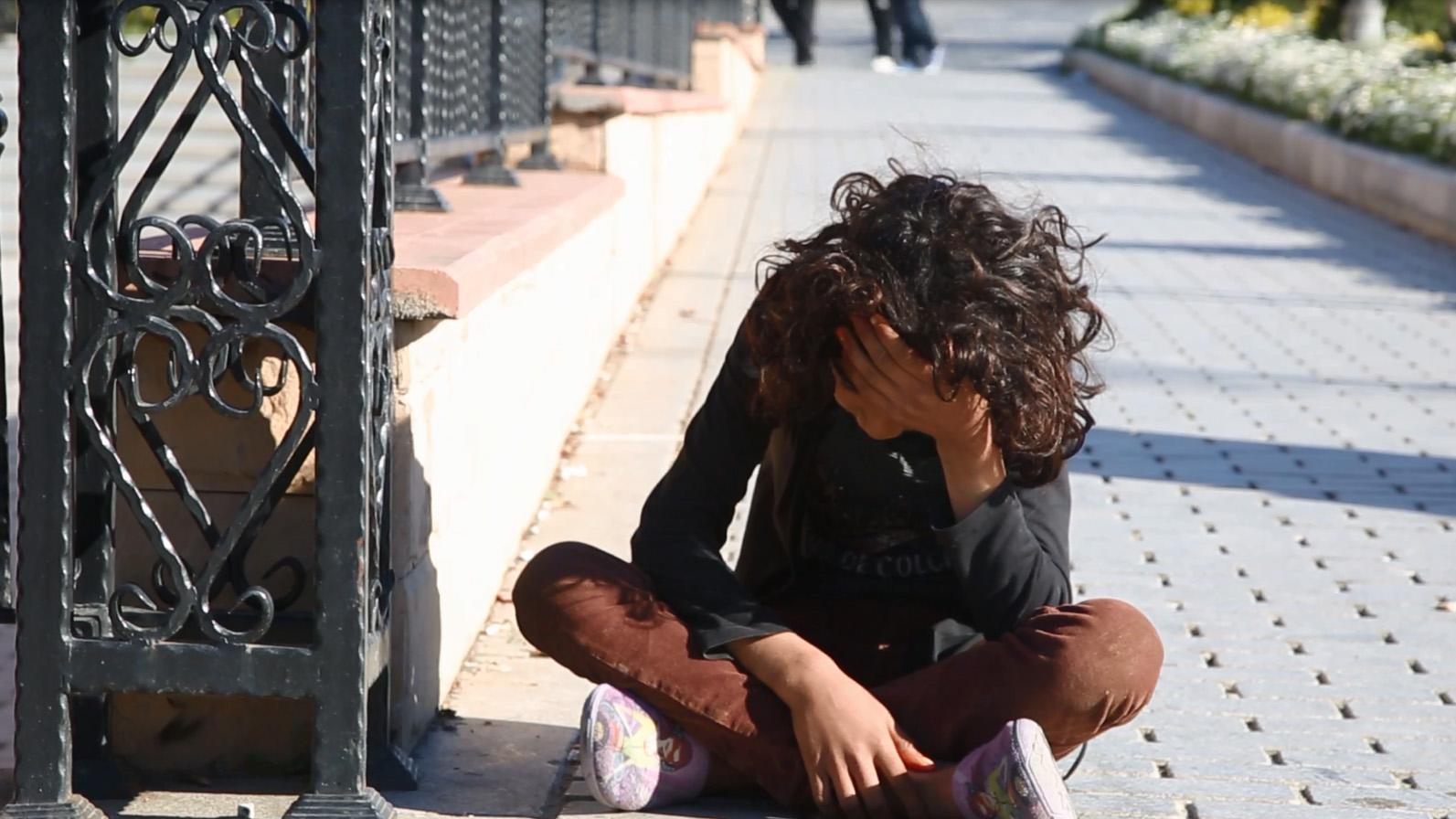For some Syrian refugees in Turkey, begging is their only hope
A Syrian refugee sits on the street in Istanbul.
It’s more than three years into the conflict and Syrians are still pouring out of their war-torn homeland.
In Turkey, the number of Syrian refugees is fast approaching 1 million. Only around a quarter of them are living in refugee camps. In the struggle to make a living, more than 100,000 refugees have made the journey to Istanbul, where they sell tea in parks or work at restaurants — if they’re lucky. But others are finding no way to survive other than begging for money on the street.
The Nişantaşı neighborhood’s cobblestone streets are lined with brand names like Gucci, Chanel and Prada. High-end restaurants are chock-full of the city’s rich and famous.
The sidewalks are a different story, where disheveled mothers sit with their babies while dirty, barefoot children beg for handouts.
Fatma is Kurdish, from northern Syria, and she’s one of those mothers begging in Nişantaşı. “In Aleppo, my life was very good,” she laments. “We had a huge house with a garden. My husband was working. Our life was better than here.”
Now, her husband is fighting alongside Kurdish rebels in Syria and her eldest son is stuck in the Syrian army. “We are only women, the rest of them are children. No one can find work and we have to take care of the kids as well,” she explains. So she and her daughter-in-law beg for the money to eat and pay rent.
Complicating the lives of people like Fatma is the fact that Turks are deeply suspicious. “Some people think that we are lying, that we’re not Syrian,” she says. “They think we’re Kurds from Turkey,” pretending to be Syrian for sympathy. To prove them wrong, she holds out her passport as she sits on the street.
For a lot of Turks, the sight of Syrians begging, especially kids, is tough to stomach. But others are getting tired of being responsible for all the refugees.
Engin is a store clerk in in the neighborhood where Fatma begs. He says beggars are making as much as he does, without lifting a finger.
“We’re in Istanbul. It’s a city of 20 million people. You can find work doing anything here: be a cobbler, sell simit, whatever. There’s no reason to beg,” he insists. “Besides, our country has opened camps for them.” If they can’t work, Engin says there are refugee camps that give them everything they need.
At first glance, he does seem to have a point. The camps in Turkey have a reputation for being well-equipped, with grocery stores, kitchens and even indoor plumbing, so it’s hard to believe that hundreds of thousands of Syrians need to be on the streets.
But the truth is, as the official refugee count in Turkey nears 1 million, the camps are nearly full with just a quarter of that number. And even if the refugee camps weren’t full, many Syrians are afraid of them.
When I approach Meryem to talk, she’s frantic that our interview could lead to her going to a camp. “We just ask one thing, that we don’t go to the camps,” she requests. “We’re trusting you that we don’t go to the camps after this.” She says she’d heard awful things about what goes on in them.
“In the middle of the nights fighters take guys out of the camps, they beat them” if they don’t support the opposition, she says. “There isn’t freedom to leave the camps and drink and eat and live like people. It’s like jail!”
Meryem insists that the camps are full of suffering. “If you give me a house, shouldn’t I also have the freedom to leave it?” she asks. “Whatever, this is better — we’ll live like this, we’ll live on the streets it’s still better than the camps.”
Andrew Gardner, with Amnesty International, says it’s really hard to tell exactly what’s going on in the Turkish refugee camps. The government won’t give NGOs access, and rumors are rampant. He says he’s heard them all.
“The other thing to recognize is that no one wants to live in a refugee camp,” he points out. “Everyone wants to be able to move freely and to be able to provide for themselves independently,” even if that means living in tough conditions and begging to make ends meet.
Our coverage reaches millions each week, but only a small fraction of listeners contribute to sustain our program. We still need 224 more people to donate $100 or $10/monthly to unlock our $67,000 match. Will you help us get there today?
